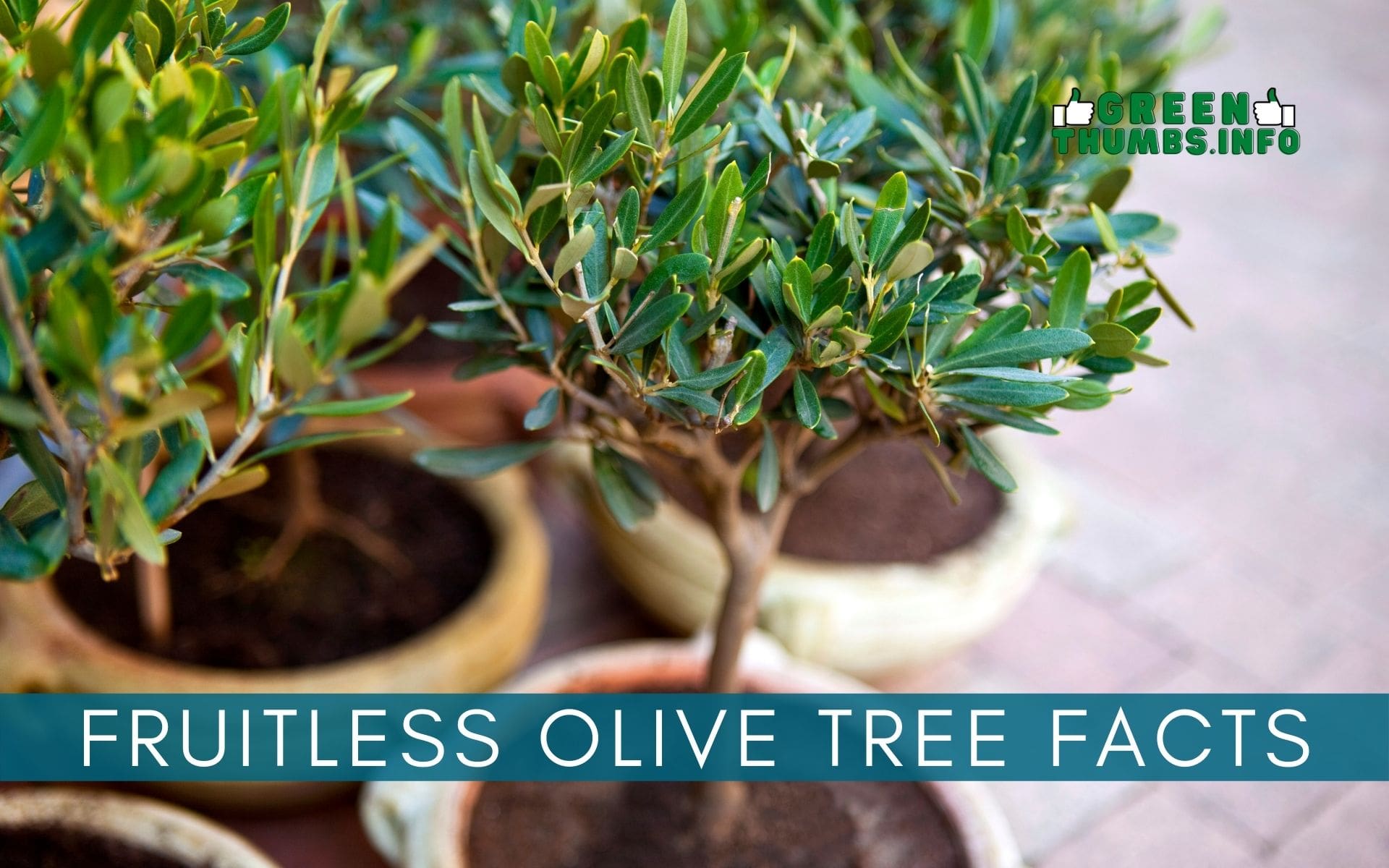Fruitless Olive Trees are one of the most popular decorative plants to grow. But, not all olive trees are created equal!
This article will discuss some of the fundamentals you should know before purchasing your next fruitless olive tree for your home or office space.
What is a Fruitless Olive Tree?
A fruitless olive tree is a type of olive tree that does not produce any edible olives. The tree will still produce leaves and branches and makes a wonderful tree to grow for ornamental purposes.
Why Grow a Fruitless Olive Tree?
Fruitless olive trees are popular for a variety of reasons. Some people choose to grow them because they are attractive plants that can add an element of sophistication to any space. Others grow them because they are interested in having an olive tree for its historical significance.
Regardless of your reasons, fruitless olive trees are a great addition to any home garden or plant collection.
How Big Do Fruitless Olive Trees Get?
Fruitless olive trees can grow to be around 25-30 feet tall. They typically achieve this height over a period of several years.
You can manage the size of your fruitless olive tree by regularly pruning it to keep it from getting too large. You can also buy a dwarf olive tree that can easily be grown in a pot indoors or even outdoors.
Are Fruitless Olive Tree Roots Invasive?
The roots of a fruitless olive tree are not considered invasive. This means you can plant the tree in any location without worrying about it growing out of control and taking over your garden or landscaping.
Since they are considered to be non-invasive, this also means you can safely plant a fruitless olive tree near your home without worrying about the roots damaging your foundation or any underground pipes.
Do Fruitless Olive Trees Drop Leaves?
Fruitless olive trees are evergreens and usually only drop a few leaves throughout the year. If your fruitless olive tree is losing too many leaves or if the leaves are turning yellow, it may be a sign of disease or improper care.
You can limit leaf shedding, it is recommended that you prune your tree in early spring before new buds form on the tree. Regular pruning will help ensure that all of the leaves grow at the same time and can be maintained as one full canopy extending over your outdoor space.
How Fast Do Fruitless Olives Grow?
In general, you can expect a fruitless olive tree to grow between 3 and 5 feet in height per year and 25 to 30 feet total over the plant’s lifetime. This will vary depending on the growing conditions, but environmental factors are usually not a limiting factor in tree height.
Are Fruitless Olive Trees Drought Resistant?
All types of olive trees, including fruitless ones, are considered drought resistant. In fact, olive trees in general don’t like too much water or moist soil.
However, it’s important to make sure you are giving your tree plenty of water when you first plant it and during periods of drought. This will help your tree get established and become more drought resistant over time.
If you are looking for a low-maintenance plant that doesn’t require a lot of attention, a fruitless olive tree may be the perfect choice for you. These trees are hardy and can thrive in a variety of climates. With a little bit of care, you can enjoy the beauty and simplicity of a fruitless olive tree for many years to come.
Are Fruitless Olive Trees Poisonous to Dogs?
The scientific consensus is that there is no evidence to suggest any parts of an olive tree, including the fruit or leaves, are poisonous to animals. This makes olive trees a safe choice for planting near your home and in your garden.
Final Thoughts
A fruitless olive tree can make a beautiful addition to any landscape. They are hardy, resistant to drought, and can thrive in a variety of climates. You can manage their size with regular pruning and they require very little maintenance.
So, if you’re looking for a low-maintenance plant that doesn’t require a lot of attention, fruitless olive trees are perfect for you. With a little bit of care, you can enjoy the beauty and simplicity of a fruitless olive tree for many years to come.

